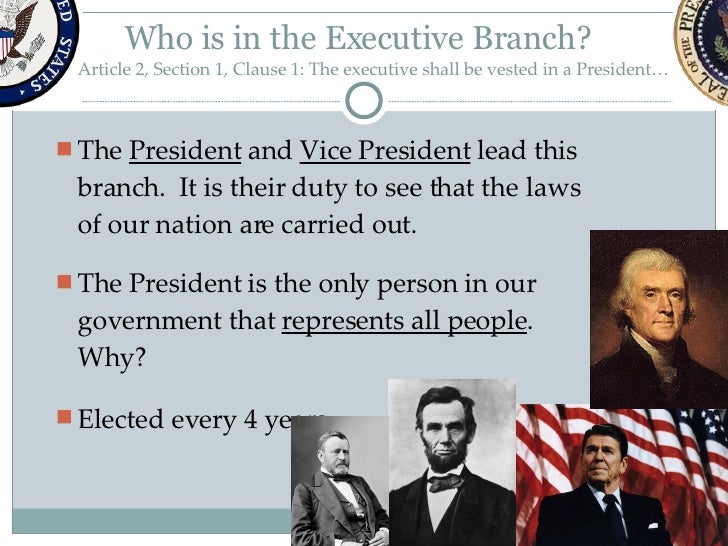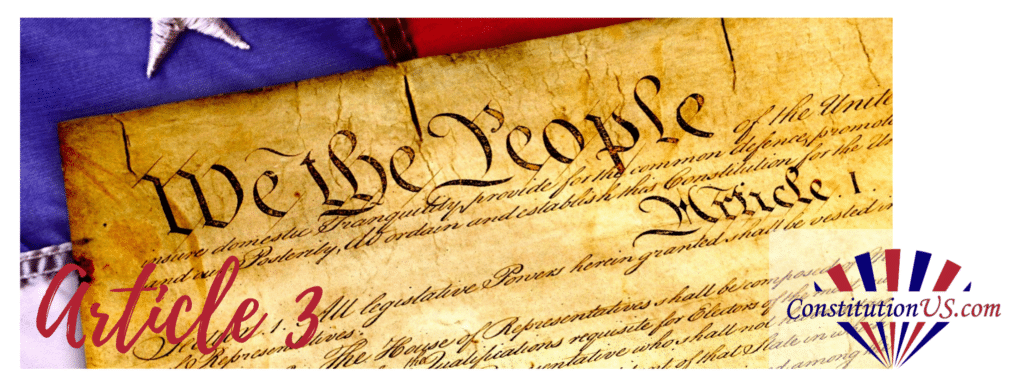Article Ii Section 2 Clause 1 Of The Constitution Of The United States
With permission from two-thirds of the senators present the president can make treaties agreements with other countries. Clause 2 of Article 6 is known as the Supremacy Clause.

Article Two Of The Constitution
Article II Executive Branch Signed in convention September 17 1787.

Article ii section 2 clause 1 of the constitution of the united states. Clause 2 of Article 6 is known as the Supremacy Clause. Article II has been expanded and adapted by some Constitutional Amendments over the years. Article II Section 2 Clause 2 does a few things.
Article 1 - The Legislative Branch Section 1 - The Legislature. And he shall nominate and by and with the Advice and Consent of the Senate shall appoint Ambassadors other public Ministers and Consuls Judges of the supreme Court and all other Officers of the. The executive Power shall be vested in a President of the United States of America.
Each State shall appoint in such Manner as the Legislature thereof may direct a Number of Electors This open-ended delegation of power to the states over the award of their Electoral votes creates a power in state legislatures that is exclusive and plenary and the legislatures have exercised their power in. The executive Power shall be vested in a President of. E As used in this Section 1 Compel includes the levying of penalties or.
Clause 2 gives the President power to sign treaties on behalf of the United States in conjunction with counsel from the Senate and at least two-thirds support. He may require the Opinion in writing of the principal Officer in each of the executive Departments upon any Subject relating to the Duties. The president has the power to pardon let free any person who has committed a federal crime except in cases of impeachment.
Section 3 imposes obligations on the President that are. Along with counsel and advice from the Senate the President is given the authority to appoint judges ambassadors and other public officials. Article II Section 2 begins with the Commander in Chief Clause stating the President is the commander of the nations armed forces.
The President shall be Commander in Chief of the Army and Navy of the United States and of the Militia of the several States when called into the actual Service of the United States. Article II Section 1 Clause 2 of the US. Portions of Article II Section 1 were changed by the 12th Amendment and the 25th Amendment Section 1 The executive Power shall be vested in a President of the United States of America.
All legislative Powers herein granted shall be vested in a Congress of the United States which shall consist of a Senate and House of Representatives. Clause 1 of Article 6 says that if there were any debts before adopting the Constitution they are still valid and have the same terms as if they were still under the Articles of Confederation. The Executive branch of government is tasked with the actual implementation and administration of the laws that Congress creates.
It defines the Presidents appointment authority. The Twenty-Fifth Amendment for example specifically clarified Clause 6 in Section 1 of Article II of the Constitution because of its ill-defined wording. He can appoint officers of the United States including the Supreme Court.
Clause 2 of Article 6. Clause 2 of Article 6 is known as the Supremacy Clause. It defines the Office of the President as the office responsible for foreign relations as it gives the President the power to make treaties.
Article II governs the powers and limitations of the Executive branch of the Government led by the President. Vesting Clause and Inherent Executive Power. Constitution opens by saying.
While Clause 6 would have provided for the Vice President to assume the duties for the President if the President were. Article Two of the United States Constitution establishes the executive branch of the federal government which carries out and enforces federal lawsSection 2 of Article Two lays out the powers of the presidency establishing that the president serves as the commander-in-chief of the military among many other roles. To all Cases of admiralty and maritime Jurisdiction.
Commander in Chief Important Cases. With the approval of a majority of senators the president makes a number of key appointments. Clause 2 of Article 6.
The House of Representatives shall be composed of Members chosen every second Year by the People of the several States and the Electors in each State shall have the Qualifications requisite for Electors of the most numerous Branch of the State Legislature. What does Article 2 Section 3 of the Constitution mean. Article 2 - The Executive BranchSection 1 - The President.
It further grants the President the authority to adjourn Congress whenever the chambers cannot agree when to adjourn a power that no President has ever exercised. While the Constitution vests Congress with the ability to declare war it is the Executive that actually manages and commands the armed forces once war has been declared. The judicial Power shall extend to all Cases in Law and Equity arising under this Constitution the Laws of the United States and Treaties made or which shall be made under their Authority.
Article II Section 3 both grants and constrains presidential power. He shall have Power by and with the Advice and Consent of the Senate to make Treaties provided two thirds of the Senators present concur. Ratified June 21 1788.
He shall hold his Office during the Term of four Years and together with the Vice-President chosen for the same Term be elected as follows. Article Two vests the power of the executive branch in the office of the president of the United States lays out the procedures for electing and removing the president and establishes the presidents powers and responsibilities. The judicial Power shall extend to all Cases in Law and Equity arising under this Constitution the Laws of the United States and Treaties made or which shall be made under their Authorityto all Cases affecting Ambassadors other public ministers and Consulsto all Cases of admiralty and maritime Jurisdictionto Controversies to which the United States shall be a Partyto.
To all Cases affecting Ambassadors other public Ministers and Consuls. Jan 24 2010 Article 1 Section 1 of the United States Constitution. To Controversies to which the United States shall.
Article 1 Section 2 of the United States Constitution. Clause 1 of Article 6 says that if there were any debts before adopting the Constitution they are still valid and have the same terms as if they were still under the Articles of Confederation. Article II Section 2 Clause 1 Cabinet A group of advisers called secretaries who administrate different departments for the president Department of State Cabinet office in charge of.

U S Constitution Article 2 Section 2 The U S Constitution Online Usconstitution Net

Article Two Of The Constitution

Article 2 Of The Constitution Us Constitution Laws Com
Article 2 Of The U S Constitution Summary The Executive Branch

Posting Komentar untuk "Article Ii Section 2 Clause 1 Of The Constitution Of The United States"